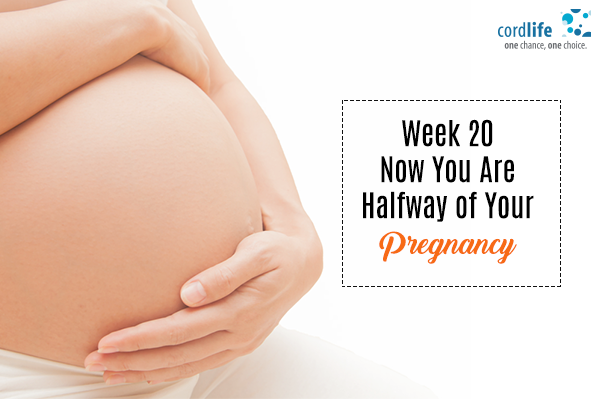Congratulations at the 20th week you are halfway through your pregnancy. At this time, you might have gained approximately 8 to 10 pounds of weight as stated by the American Association of Pregnancy. Your doctor or midwife must give you the same advice to maintain the weight by adjusting your eating habits and doing exercises.
Endeavors With Your Baby
By this time your baby is now 19.7 cm long and 0.26 kg of weight, reported by the American Association of Pregnancy. Your baby is now experiencing the outside world from his mother’s womb in a muted fashion. Baby hears maternal heartbeats, breathing, and even intestinal sounds. Also, sometimes be seen or felt to move to the sound of its mother’s voice. His brain is developing the neuron centers that will give rise to its senses. At this time your baby started to get hiccups which are normal for every baby.
Changes in Your Body
- Your vaginal discharge keeps on increasing until your delivery. It is a normal process of your body that keeps the bacteria away.
- Drink plenty of water and do stretches for reducing the leg cramps.
- Avoid spicy foods to reduce the heartburn and indigestion caused due to the dysfunction of the digestive system during pregnancy.
- Nausea might bother you a little but don’t worry its completely normal. The ginger can provide you rid of nausea.
- Swelling during pregnancy is normal and will subside post to delivery so give your feet some rest to decrease swelling.
- It’s not uncommon for women to become mentally unwell in pregnancy,
- Noticed a dark vertical line going up your belly? This is called a linea nigra and sometimes appears around this time. It’s nothing to worry about and will disappear eventually after the birth.
Keep in Mind – Pilates strengthens and stretches your core muscles, and helps your body cope with carrying the extra weight of your growing baby.
Things To Do For This Week
Make sure to get enough nutrients with your diet, particularly iron. Increase in iron consumption is needed as it helps your child produce hemoglobin and avoids anemia, low birth weight and early death. For different reasons, your doctor/gynecologist may want to perform an ultrasound to measure the growth and development of your baby, estimate the due date, monitor for birth defects, and evaluate the placenta and umbilical cord.
